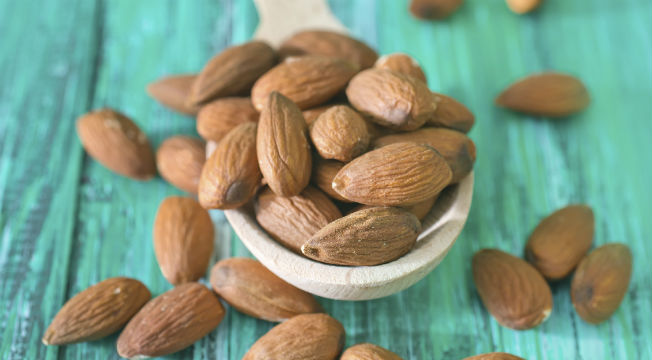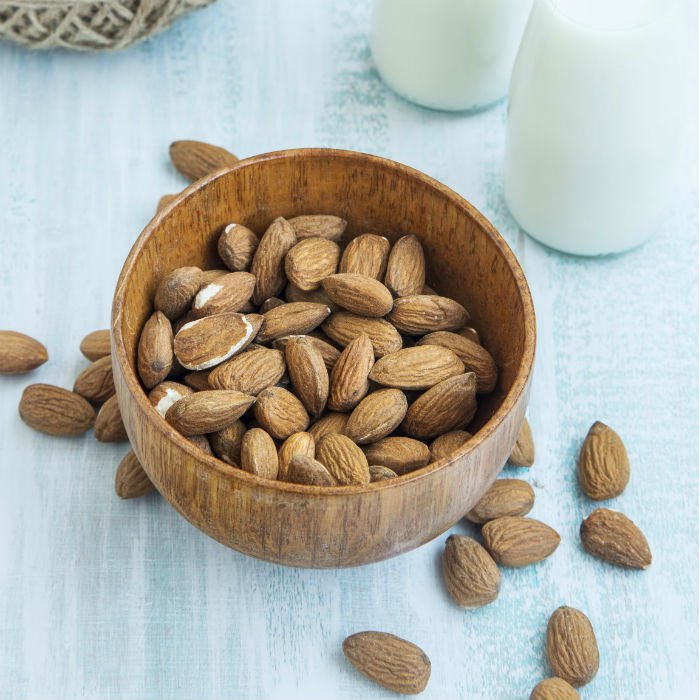Almond: lipids and fatty acids
Particularly caloric, the almond includes 575 calories per 100 grams, this dry fruit is yet a great way to provide essential fatty acids for the proper functioning of the body. Like all oilseeds, the almond is provided with a large portion of fat: these fats can be scary for both the silhouette and the cardiovascular system. With 50% of lipid intake per serving, you must learn not to abuse it, but to consume it judiciously to enjoy their benefits.
It should be known that this intake of lipids is mostly composed of monounsaturated and polyunsaturated fatty acids: these are fatty acids that are good for the heart because they help promote "good" cholesterol while decreasing blood triglycerides. Almond contributes to the health of your cardiovascular system by lowering the "bad" cholesterol. It tends, with regular consumption and controlled, to reduce the risk of coronary heart disease. Do not hesitate to chew some almonds during your meals for a health gesture while greed.
The fibers of the kernel for a good intestinal transit
A portion of almonds consists of a quarter of dietary fiber . The fibers contained in almonds are essential for normal intestinal transit: a diet rich in dietary fiber is recognized as essential for the digestive system. Indeed, the fibers provide a quick feeling of satiety and contribute to lowering the daily calorie bill thus inducing a significant weight loss . Made with 80% insoluble fiber, almonds help improve the circulation of digested food and increase bowel movements. They are particularly indicated for people suffering from constipation.
By increasing the content of the bolus, they act as sponges that absorb the water contained in the diet and help renew the intestinal bacterial flora. Soluble fiber, less present in almonds, is effective in reducing cholesterol levels. The assets of almonds are therefore known to reduce the risk of developing colon cancer.

Photo credit: IStock / tycoon751
Almonds rich in antioxidants
Recognized for their antioxidant action, almonds are rich in elements that act on oxidative stress: free radicals contained in food or produced by poor lifestyle and stress, alter the integrity of cell membranes to cause development different conditions such as cancer, cardiovascular disease and skin aging. Major antioxidants, vitamin E , phytosterols and phenols (especially concentrated in the skin of the kernel) contained in the kernel are prominent cell protectors.
Thinking about adding some almonds to one's menus is an ideal way to help protect the cardiovascular, respiratory and neurological systems to limit the progression of diseases.
The trace elements of almond
Rich in various mineral salts, the kernel is particularly well supplied with magnesium, manganese and copper. Almonds are excellent sources and they collaborate to bring essential nutrients to the proper functioning of the metabolism: magnesium participates in various processes, such as bone and dental development, strengthening the immune system and muscle contraction.
Copper and manganese are recognized as cofactors for most enzymes that protect cells from free radicals. These two mineral salts also act on the energy synthesis that occurs with the proteins, lipids and carbohydrates of the diet.


